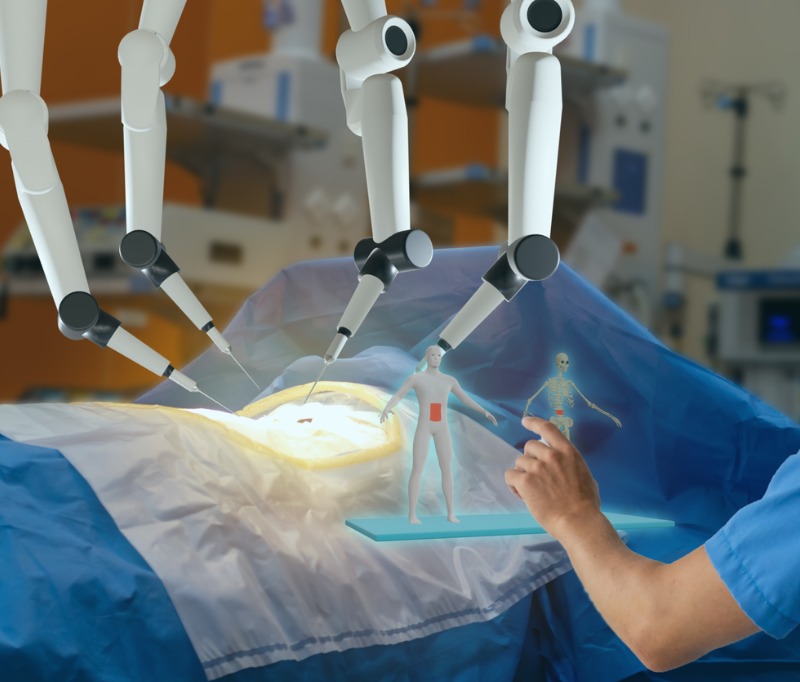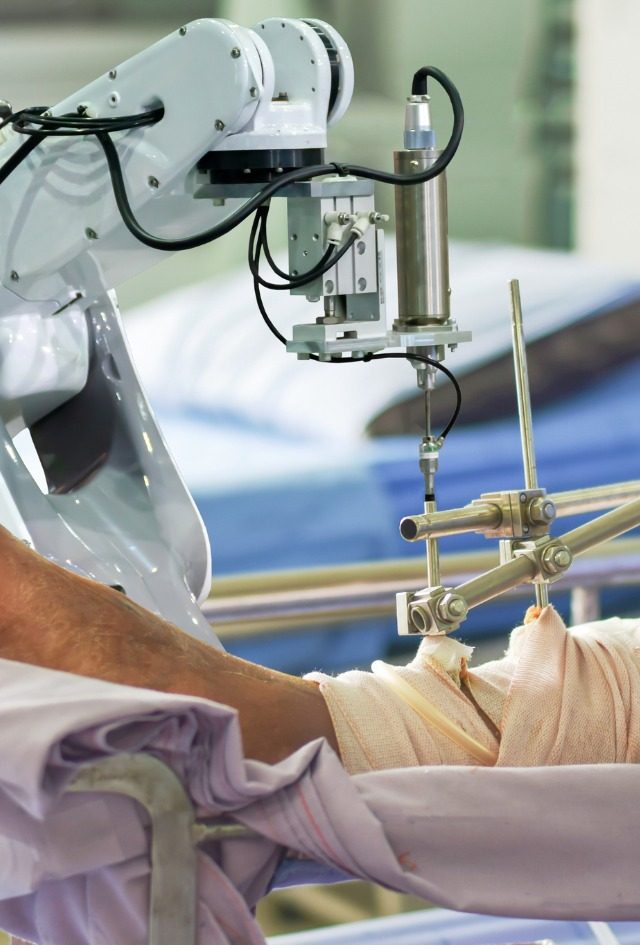Definition:
Robotic surgery is also known as robot-assisted surgery and allows doctors to perform complex procedures with precision, flexibility and a lot of control than possible with conventional surgical techniques. It is a minimally invasive surgery performed via tiny incisions.
- Robotic surgery is sometimes also used in certain types of traditional open surgeries.
- The robotic surgical system consists of a camera arm as well as mechanical arms with certain surgical instruments attached to the arms. Surgeons control the arms while sitting at computer consoles located near operating table.
- The surgeon gets a high-definition, 3D, magnified, view of the site of surgery.


